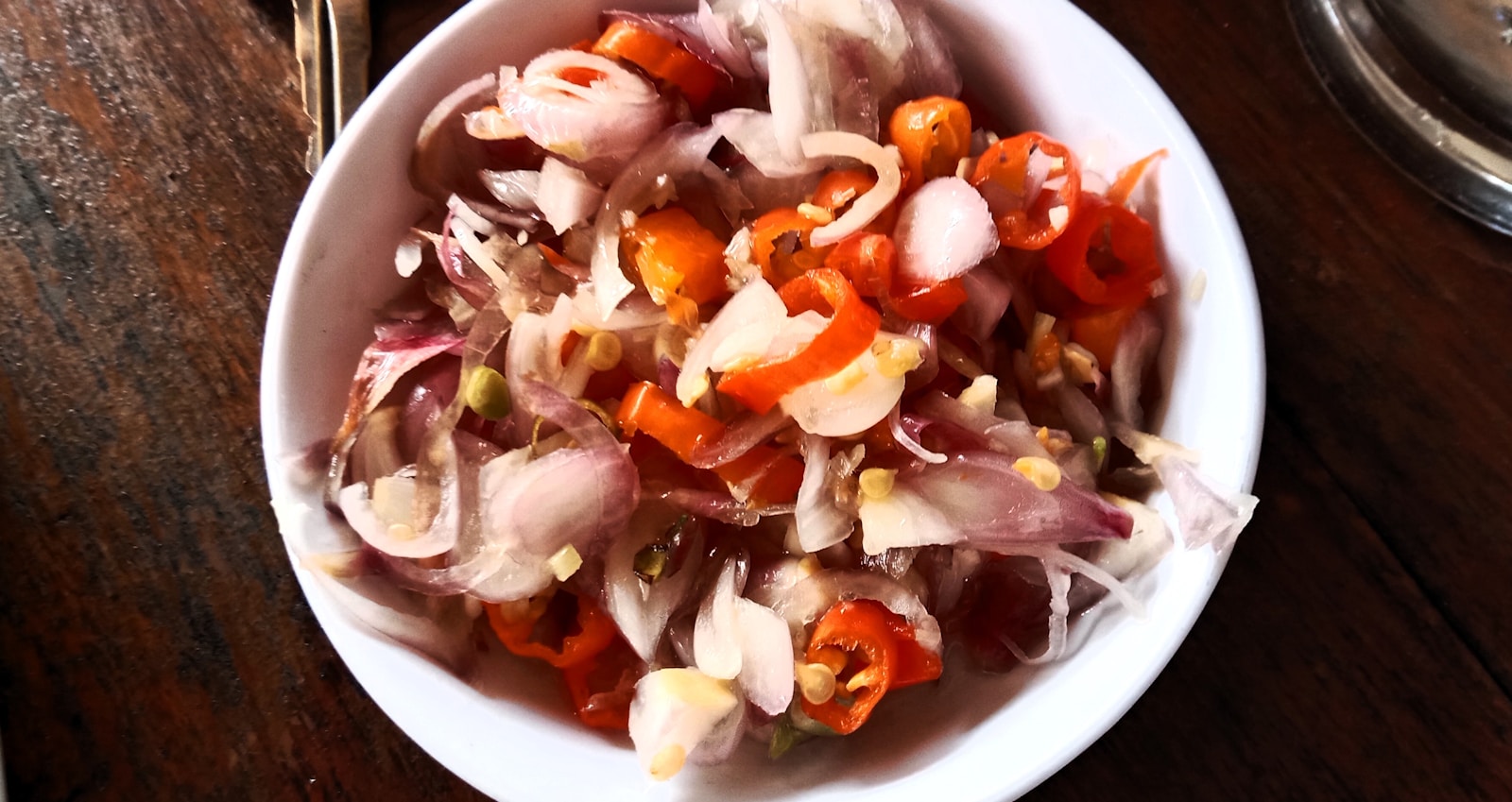
油
yóu

oil
In Chinese, the word for oil is '油'. It is used in similar contexts as in English, such as cooking oil ('食用油'), motor oil ('机油') or oily ('油腻'). Chinese cuisine typically makes use of various types of oils for frying, sautéing, and other cooking methods.
Example sentences using: 油
这个菜太油了。
Zhè gè cài tài yóu le.

This dish is too oily.
This sentence is commonly used to describe a dish that has too much oil. In Chinese cuisine, people are usually aware of the balance between oil and other ingredients.
你需要更多的油吗?
Nǐ xūyào gèng duō de yóu ma?

Do you need more oil?
This is a normal question that people might ask at dinner, when someone might need more oil for cooking or for dipping bread.
他在加热油。
Tā zài jiārè yóu.

He is heating up the oil.
This phrase could be used in the context of someone preparing to cook something that requires hot oil.
汽车需要换油。
Qìchē xūyào huàn yóu.

The car needs an oil change.
This is a common phrase used when the oil in a car needs to be replaced for maintenance purposes.
我喜欢吃少油的食物。
Wǒ xǐhuān chī shǎo yóu de shíwù.

I like to eat food that has less oil.
This phrase would be used by someone who prefers to eat food that is not too greasy or oily.
请先热油。
Qǐng xiān rè yóu.

Please heat the oil first.
This phrase could be part of a cooking instruction where one must heat the oil before proceeding with the next steps.
这个油烟机坏了。
Zhège yóuyānjī huài le.

This range hood is broken.
油烟机 is a range hood or extractor hood that removes smoke and smells from cooking. It literally translates to 'oil smoke machine'.
今年油价上涨了。
Jīnnián yóujià shàngzhǎngle.

The price of oil has gone up this year.
Used when discussing economic changes, especially the fluctuating prices of commodities like oil.
请在煎锅中加油。
Qǐng zài jiān guō zhōng jiā yóu.

Please add oil to the frying pan.
A common cooking instruction indicating that one should add oil to a frying pan in preparation for cooking.
他在学怎么画油画。
Tā zài xué zěnme huà yóuhuà.

He is learning how to paint oil paintings.
The phrase could be used when discussing someone's learning process in the context of oil painting.